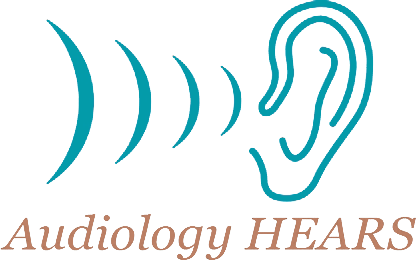Hearing loss is a common issue, and there are a range of treatment options. In recent years, over-the-counter (OTC) hearing aids have emerged as a convenient solution for individuals experiencing mild to moderate hearing loss. Let’s take a closer look at OTC hearing aids, their benefits and limitations, how they compare to traditional hearing aids, and tips for choosing the right device.
What Are Over-the-Counter Hearing Aids?
Over-the-counter hearing aids are hearing devices that can be purchased directly by consumers without a prescription or the need for a professional fitting. These devices are designed for adults with mild to moderate hearing loss and are intended to be user-friendly, allowing individuals to set them up and adjust them on their own.
- Accessibility: OTC hearing aids can be bought online or in stores, making them more accessible to those who may not have easy access to a hearing specialist.
- Affordability: They are typically more affordable than prescription hearing aids, as they eliminate the costs associated with professional consultations and fittings.
- Convenience: Users can purchase and start using OTC hearing aids immediately, without waiting for appointments or custom fittings.
- Simple Setup: Many OTC hearing aids are designed to be easy to set up and use, often coming with user manuals and online tutorials to assist with the process.
Limitations of Over-the-Counter Hearing Aids
While OTC hearing aids offer benefits, they also have some limitations that users should be aware of:
- Standard Fit: Unlike custom-fitted hearing aids, OTC devices come in standard sizes that may not perfectly fit every individual’s ear, potentially affecting comfort and sound quality.
- Basic Adjustments: OTC hearing aids may not offer the same level of fine-tuning and customization as prescription hearing aids, which can be tailored to the user’s specific hearing profile.
- Mild Hearing Loss: OTC hearing aids are designed for individuals with mild to moderate hearing loss and may not be suitable for those with moderate, severe, or profound hearing impairment.
- Potential Misuse: Without professional guidance, users may not accurately assess their hearing needs, leading to inappropriate use or inadequate correction of their hearing loss.
- No Professional Involvement: Users of OTC hearing aids do not receive the professional support and follow-up care that comes with prescription hearing aids. This can make it difficult to address complex hearing issues or find the right device.
Comparing OTC and Prescription Hearing Aids
Understanding the differences between OTC and prescription hearing aids can help individuals make an informed decision about which option is best for them:
Customization and Fit
- Prescription Hearing Aids: These devices are custom-fitted and programmed to meet the specific needs of the user, providing a more personalized hearing solution.
- OTC Hearing Aids: While convenient, OTC hearing aids offer a more general fit and may lack the fine-tuning capabilities of prescription models.
Professional Guidance
- Prescription Hearing Aids: Users receive ongoing support from a hearing health specialist, including regular check-ups, adjustments, and troubleshooting.
- OTC Hearing Aids: Users must rely on their own ability to set up and adjust their devices, with limited professional support.
Cost and Accessibility
- Prescription Hearing Aids: These devices tend to have a higher up-front investment due to all the personalized care.
- OTC Hearing Aids: More affordable and accessible, OTC hearing aids provide a cost-effective option for those with mild to moderate hearing loss.
Tips for Choosing the Right OTC Hearing Aid
If you decide to purchase an OTC hearing aid, here are a few tips:
- Hearing Test: Consider taking an online hearing test to get a rough idea of your hearing loss level. If possible, visit a hearing health specialist for a professional assessment.
- Hearing Profile: Determine whether your hearing loss is mild to moderate, as OTC hearing aids are designed for these levels of hearing impairment.
- Product Reviews: Look for reviews and ratings from other users to gauge the effectiveness and reliability of different OTC hearing aid models.
- Brand Reputation: Choose reputable brands known for producing quality hearing aids and providing good customer support.
- Adjustable Settings: Opt for a device with adjustable settings to tailor the hearing aid to your specific needs.
- Comfort and Fit: Look for models that offer different ear tip sizes and styles to ensure a comfortable and secure fit.
Explore Custom Hearing Solutions
Over-the-counter hearing aids can help manage hearing loss. If you’re choosing between OTC and custom hearing aids, visit us to explore all your hearing aid options and find out how professional support will make all the difference in finding your perfect device.
